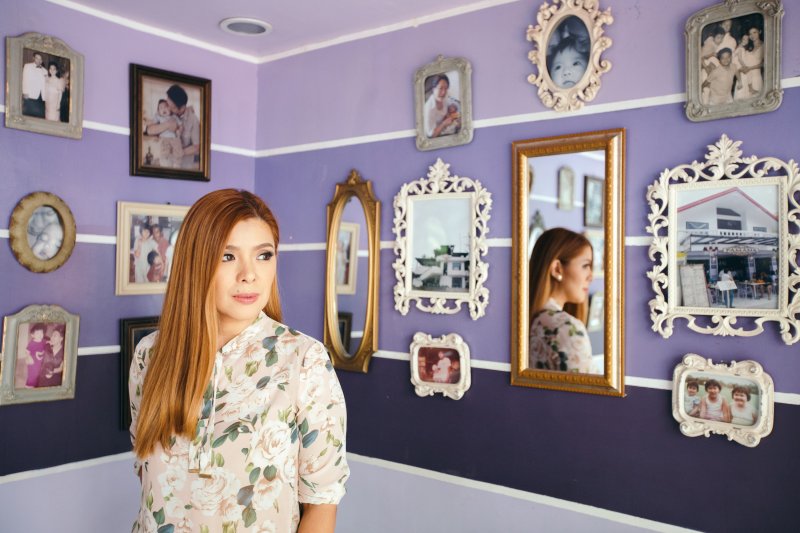One could easily surmise that for a family-run outfit responsible for inventing something as iconic as the original crispy pata, things are already as good as they will ever get for the Barrio Fiesta Company. But with the second generation now at the helm and the third generation steadily pouring in fresh ideas to further expand the company’s portfolio of restaurants into both the local and global food arena, it’s quite apparent that Barrio Fiesta’s best days have yet to come.
Even with countless Filipinos dining in one of her family’s 20 strong branches every day, it still pleases third-generation restaurateur Happy Ongpauco-Tiu every time she hears Barrio Fiesta figuring in the top-of-mind restaurants patronized by locals. This is especially true overseas, where the solid reputation of the brand has attracted the attention of international investors from as far as Canada, Dubai, and Qatar who are keen on bringing the brand to their home shores.
“Even when we’re not so aggressive in terms of marketing, it’s nice hearing how most of the people abroad still know and crave the authentic Barrio Fiesta food. It’s why our investors approach us instead of the other brands—they’re thorough with their research before they invest, and when they ask their market what Filipino restaurants they know in the Philippines, Barrio Fiesta would always be in the top rank,” she says.
Even with countless Filipinos dining in one of her family’s 20-strong branches every day, it still pleases third-generation restaurateur Happy Ongpauco-Tiu every time she hears Barrio Fiesta figuring in the top-of-mind restaurants patronized by the locals.
Barrio Fiesta traces its roots in Malabon where matriarch Chit Ongpauco started the hole-in-the-wall restaurant back in the 1950s. According to her granddaughter, this was practically unheard of at that time. “There weren’t a lot of Filipino restaurants around and my family was really one of the firsts who decided to take that leap. Barrio Fiesta became famous for my lola’s kare-kare, and when my dad came up with the crispy pata years later, it became even more popular and was known as the home of kare-kare and crispy pata,” she recounts.
While the young Ongpauco prefers working independently from the family business (she self-initiated the Happy Concept Group, whose portfolio of restaurants include World Topps, Pamana, Tsokolateria, Bento Box, and Hawaiian Bar-B-Que), she personally oversees Barrio Fiesta’s international expansion.
“I’ve always been big on independence, which is why I chose to have my own brand instead of handling any of the Philippine businesses. I did however agree to doing the international expansion. I work with my partners there and at the end of it all, it’s just the partners and me deciding.”
“We really want to grow the brand. Barrio Fiesta is still so known—but to the older generation,” says Happy Ongpauco-Tiu. “The millennials kind of don’t know it anymore, so for it to live on, we have to either have it franchised or continue to grow it as a family.”
As with the rest of her clan, Ongpauco-Tiu is a stickler for authentic Filipino flavors. “I’m not really big on fusion or on high-end small portions. I try to stick to authentic flavors because I think Filipinos would almost always go back to traditional Filipino food. Sure, they would try different cuisines maybe once or twice a month, but they would always go back to traditional Filipino food; recipes that have been passed on from one generation to the next,” she says.
Whereas it’s quite easy to stay true to her family’s heirloom recipes when in the homeland, Ongpauco-Tiu admits to finding it challenging to do this abroad. Set to open in Qatar this September—its second branch in the Middle East after Dubai—Barrio Fiesta has a great deal of menu items that needed to be altered to suit the preferences of the Muslim country. “I had to omit all the pork,” she says, adding that their biggest seller, the crispy pata, even had to be taken off the menu.
Not one to back out of a challenge, Ongpauco-Tiu’s team resorted to some crafty, creative tactics. “We decided to come up with alternative recipes that would satisfy Filipinos’ cravings for crispy pata and other pork dishes, so we played around with classic items like the tokwa’t baboy. Because chicken skin has the same richness we all crave in pork, we made it tokwa’t balat ng manok instead,” she says.
“We’re really pushing the family to work on it, to continue the legacy that my grandparents built. We’re doing really well in our businesses abroad, but there’s more that could be done here in the Philippines,” says Happy Ongpauco-Tiu.
Right now, things are humming along smoothly for the Barrio Fiesta group’s international operations. But Ongpauco-Tiu shares her cousins’ sentiments that there’s a need to shake up the Philippine business.
“There’s so much potential for franchising it in the country. Right now, the second generation is not really keen on it. They don’t see the point and I guess they’re old-fashioned that way,” says Ongpauco-Tiu.
“But the third generation, my cousins and I, we’re trying to put structure into the whole system to make it franchise-ready. We really want to grow the brand. Barrio Fiesta is still so known—but to the older generation. The millennials kind of don’t know it anymore, so for it to live on, we have to either have it franchised or continue to grow it as a family. We’re really pushing the family to work on it, to continue the legacy that my grandparents built. We’re doing really well in our businesses abroad, but there’s more that could be done here in the Philippines.”
And this means exciting times for both the local and international customers as we anticipate their new tricks in the bag.
Originally published in F&B Report Vol. 13 No. 4





